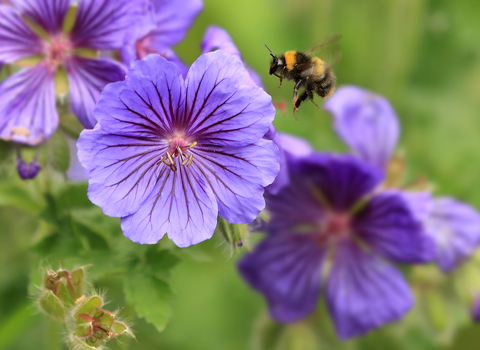Legalising a pesticide which kills bees, harms wildflowers and pollutes waterways would be a mistake- especially when the Government has just made a legally binding commitment to halt the decline in nature by 2030. Yet allowing the use of a banned pesticide in England is what the Environment Secretary, the Rt Hon George Eustice MP, has decided to do for the second year in a row.
On 14th January, Defra issued an emergency authorisation for the use of Cruiser SB to treat sugar beet seed in 2022, following an application for this emergency derogation from British Sugar and the National Farmers Union (NFU). This product contains the neonicotinoid, thiamethoxam, an incredibly harmful pesticide, particularly for pollinators. Neonicotinoids are neurotoxic pesticides, meaning they affect the nervous systems of bees and other insects, causing paralysis and death. Academic and author, Professor Dave Goulson, has warned that one teaspoon of this type of chemical is enough to kill 1.25 billion honeybees, equivalent to four lorryloads of bees.
The Wildlife Trusts strongly oppose the authorisation. We’re calling on everyone who cares about nature to stand up for the bees too. We need you to ask your MP to get Defra to overturn this shocking decision. We must show the Government that our pollinators will be protected by those who care about nature and the future of our planet.
This year’s decision to authorise Cruiser SB is even more concerning than last year’s decision. The Environment Act, which became law in November 2021, sets a legal target to halt the decline of nature by 2030. By authorising the use of neonicotinoids, the UK Government are damaging their own ability to meet this legal commitment. The decision also went against the advice of the experts – the UK Expert Committee on Pesticides and Health and Safety Executive both advised against a derogation because of unacceptable environmental risks. The Government’s decision to allow the use of neonicotinoids isn’t just harmful to nature – it doesn’t make sense. When these pesticides were banned within the EU in 2018, the then-Environment Secretary, the Rt Hon Michael Gove MP, said the UK would keep the ban after Brexit, unless the scientific evidence changed. It hasn’t – so why the change of heart?




